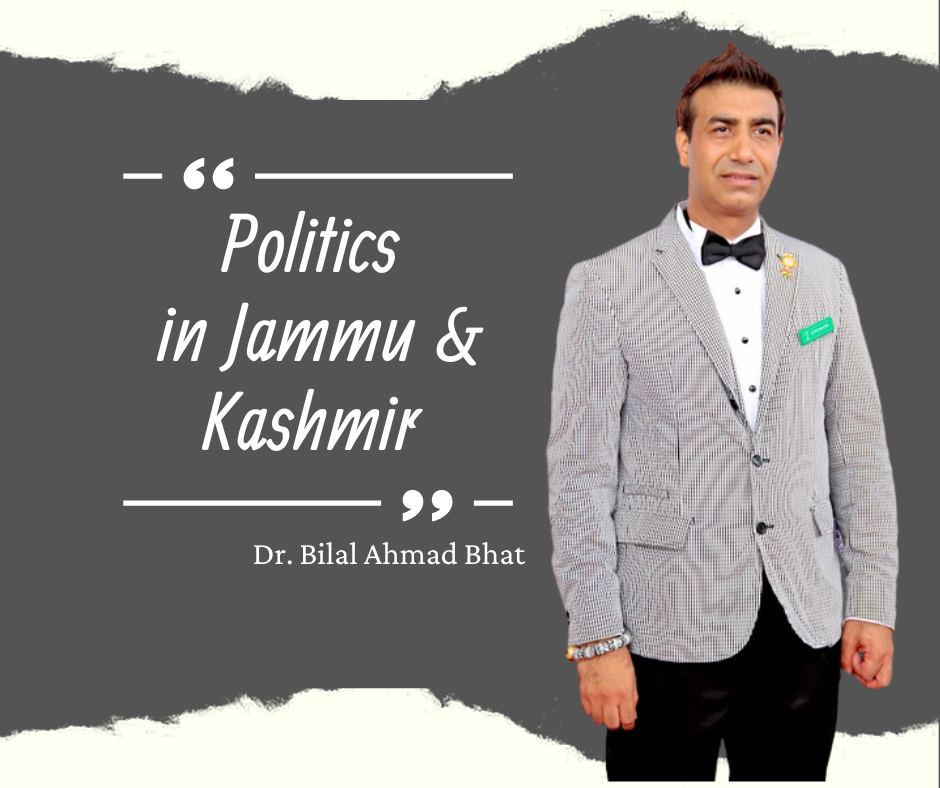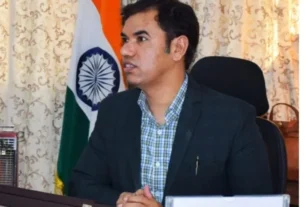In the picturesque landscapes of Jammu & Kashmir, where the natural beauty is marred by a complex socio-political landscape, the shadow of family politics looms large. Dr. Bilal Ahmad Bhat, a prominent voice in the region said in 7 generations, we have two government employees in our family, sheds light on the unprecedented failure of development in the state due to the stranglehold of family politics. This case study delves into the intricate web of family-dominated politics in Jammu & Kashmir and its ramifications on the region’s progress.
The Dominance of Family Politics
In Jammu & Kashmir, the political arena has long been dominated by a handful of family-centric political parties. These parties, often passed down through generations, wield significant influence over the political landscape. Dr. Bilal Ahmad Bhat, drawing from his own family’s experience, highlights the prevalence of this dominance and its impact on the state’s development.
Playing with Emotional and Moral Values
One of the key findings of the case study is the manipulation of Kashmiri emotional and moral values by family-centric political parties. Dr. Bilal Ahmad Bhat observes that these parties often exploit the sentiments of the people for political gains, using emotional rhetoric to maintain their grip on power.
Exclusion of Youth from Family Politics
A critical aspect of family politics in Jammu & Kashmir is the exclusion of young and aspiring individuals from participating in the political process. Dr. Bhat notes that the youth have limited access to family politics, as these political entities are often controlled by a select few families. This exclusionary approach hampers the emergence of fresh perspectives and dynamic leadership.
A Legacy of Government Employment
Dr. Bilal Ahmad Bhat’s family, spanning seven generations, has a unique legacy of government employment. Despite being entrenched in this tradition, Dr. Bhat emphasizes that his family instilled a mindset of self-reliance, recognizing that government positions were not the only avenues for success. This mindset, he believes, is crucial for breaking the cycle of dependency on family politics.
Backlash Against Family Politics
Dr. Bhat predicts a looming backlash against family politics in Jammu & Kashmir. The younger generation, he observes, is increasingly disillusioned with the status quo. The case study suggests that the youth’s understanding of the impact of family politics on development has cultivated a desire for change and a rejection of the entrenched political dynasties.
Advocating for Change: The Need for Fresh Leadership
As a proponent of change, Dr. Bilal Ahmad Bhat advocates for fresh leadership in Jammu & Kashmir. He contends that family politics, with its inherent limitations and biases, cannot sustain itself indefinitely. The need for qualified, passionate, and visionary leaders who can work for the welfare of the people is paramount for the region’s progress.
Dr. Bilal’s Success Story: A Testament to Self-Reliance
Dr. Bhat’s personal success story serves as a testament to the efficacy of breaking away from the confines of family politics. By instilling a sense of self-reliance and determination, his family paved the way for his accomplishments. This narrative challenges the notion that success in Jammu & Kashmir is solely linked to political affiliations.
A Call for Inclusivity and Development
The case study concludes with a resounding call for inclusivity and development in Jammu & Kashmir. Dr. Bilal Ahmad Bhat envisions a future where aspiring youth have equal opportunities to contribute to the state’s progress. Breaking the chains of family politics, he believes, will usher in a new era of leadership focused on development, peace, and inclusive governance.
In conclusion, the case study on family politics in Jammu & Kashmir reveals a complex dynamic that has hindered the region’s development. Dr. Bilal Ahmad Bhat’s insights, rooted in personal experience and observation, highlight the need for a paradigm shift away from family-centric political structures. The youth’s growing discontent and the call for change present an opportunity for a more inclusive, dynamic, and progressive political landscape in the enchanting valleys of Jammu & Kashmir. As Dr. Bhat aptly puts it, the era of family politics in the region may be nearing its end, paving the way for a more democratic and developmental future.





